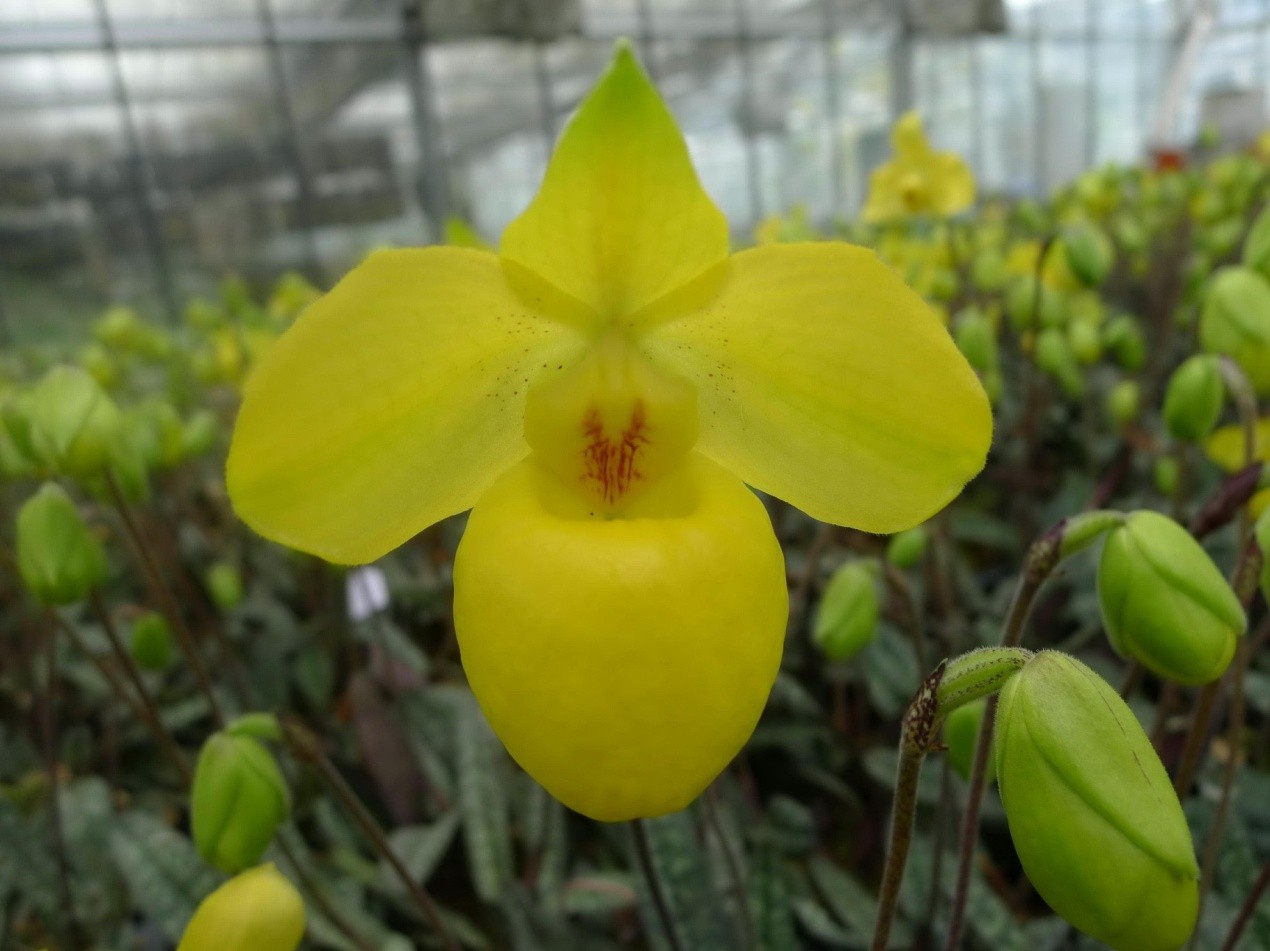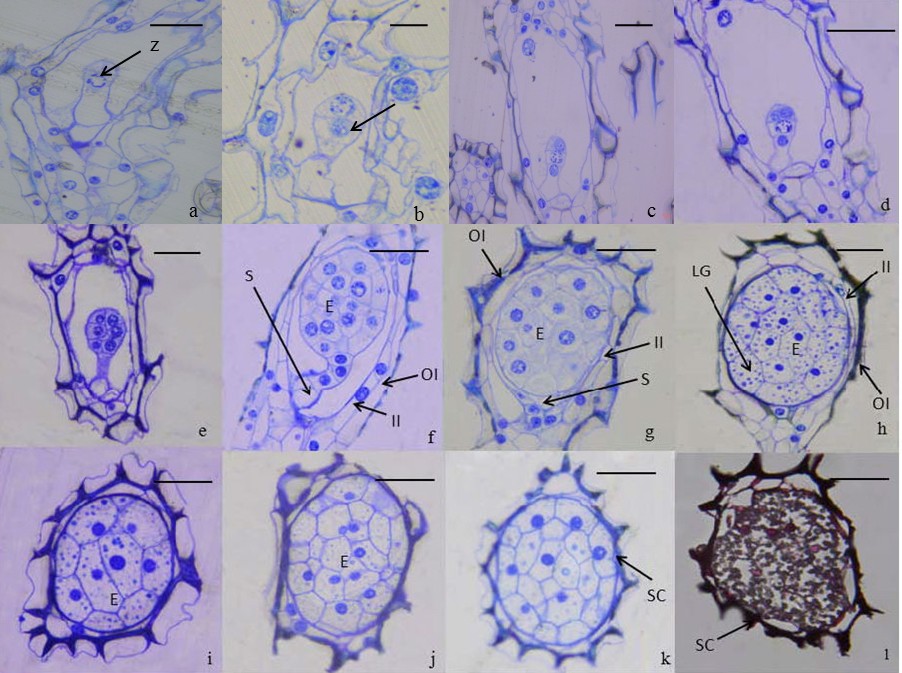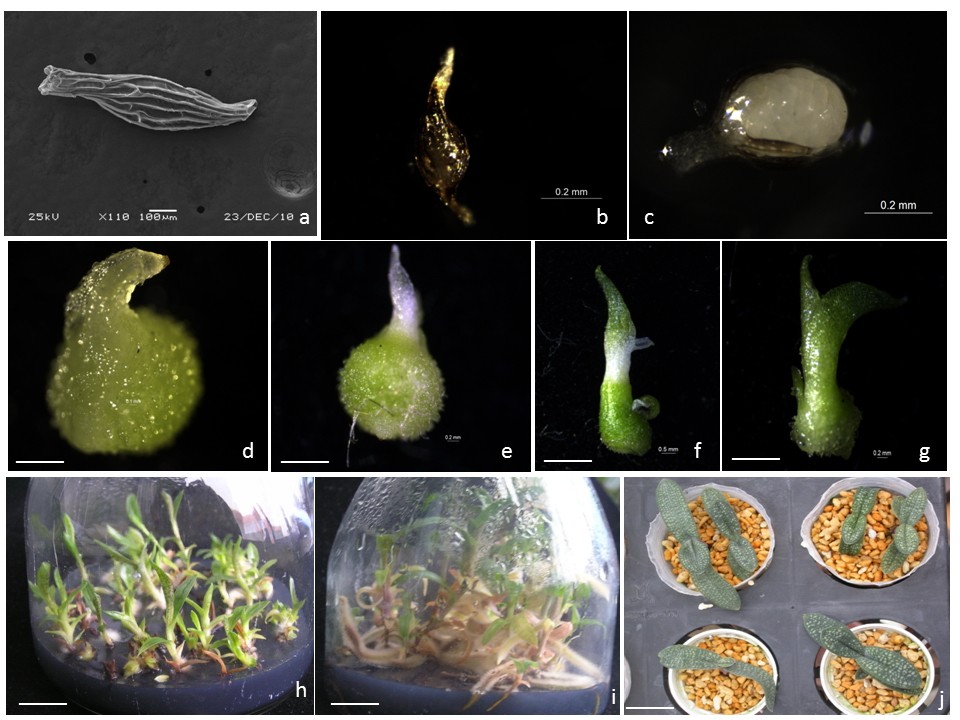Paphiopedilum species, popularly known as slipper orchids because of the resemblance of their pouch-shaped lip to a lady’s slipper, gorgeous flower color and long-lasting flowering, have captured the interest of many orchid growers and hobbyists and are one of the most popular and rare orchid genera being sold and exhibited today. Wild populations are under the threat of extinction as a result of over-collection, loss of suitable habitats, and all species are listed in the Convention on International Trade in Endangered Species of Wild Fauna and Flora (CITES) Appendix I and their trade is prohibited. P. armeniacum, only native to Yunnan, china and known as “Golden boy”, is one of the most fascinating Paphiopedilum species because of its characteristic golden flowers (Fig 1). However, the propagation of P. armeniacum is very difficult because its division propagation is slow and the asymbiotic seed germination percentage is low. P. armeniacum is a flagship species of Paphiopedilum genus in plant conservation research, which is referred to as ‘Panda’ in plant kingdom.
Focusing on these problems, Yanyan Zhang, a master driected by Songjun Zeng etc., investigate the key anatomical features during zygotic embryo development of P. armeniacum in association with the ability of zygotic embryos to germinate asymbiotically in vitro(Fig 2), and examine the effect of culture media and seed pretreatments on seed germination and subsequent seedling growth(Fig 3). The research result showed that the seed germination percentages in vitro of P. armeniacum are significant difference among different embryo development stages, the trendency was from low to high then sharp declined in the process of seed maturity. The embryo was fully mature with a compact and fully formed testa which may have prevented the absorption and permeation of water and nutrients or have chemical inhibitors such as abscisic acid (ABA), which prevent seed germination. The seed germination percentages could be promoted by suitable concentration and duration of NaOCl pretreatment, Pretreatment of NaOCl may erode the testa and disrupt cell wall integrity, thus increasing the permeability of the seed to oxygen and nutrients, while inhibitors such as ABA may become reduced within seeds. These research result have been written a paper, which title was that Embryo development in association with asymbiotic seed germination in vitro of Paphiopedilum armeniacum S. C. Chen et F. Y. Liu, and published in Scientific Reports (Zhang et al.. Sci. Rep. 5, 16356; doi:10.1038/srep16356, 2015). The paper can be links to http:// www.nature.com/articles/srep16356.

Fig. 1 Flowering plants of Paphiopedilum armeniacum

Fig. 2 Histological study of embryo development in P. armeniacum

Fig. 3 In vitro seed germination and seedling development of P. armeniacum.


